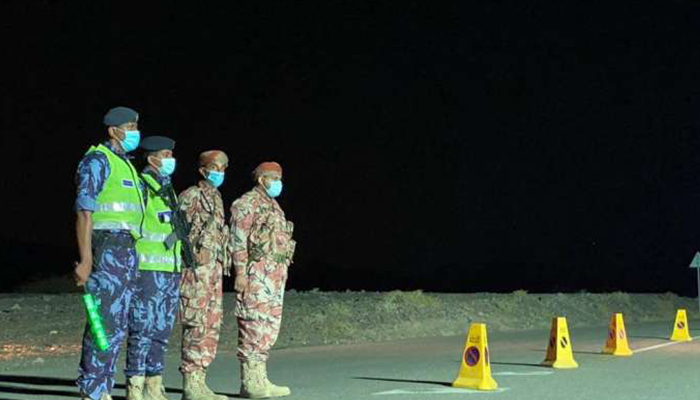Muscat: Measures adopted to prevent the spread of COVID-19 during the Holy Month of Ramadan can be eased, if the infection rate in the country decreases, the Minister of Information has said.
“The decisions that were taken for the blessed month of Ramadan can be reviewed,” said Dr Abdullah bin Nasser Al Harrasi. “If the cases decrease, procedures relating to activities and movement will be facilitated, and if the situation worsens and the cases increase, stricter decisions could be taken.
The minister added that for this reason, “everyone must adhere to the precautionary measures and reduce gathering.”
“This situation may seem illogical, because the number of infections continue to increase, despite closure of businesses, but if we look at this from another angle, the nature of the virus, its mutated strains, and the existence of a new wave would have doubled our numbers without this closure,” he went on to say.
The minister was speaking during a press conference of the Supreme Committee, which was attended by the heads of various news organisations including Oman News Agency, Sultanate of Oman TV, newspapers, and other media representatives.
During the meeting, Dr Ahmed bin Mohammed Al Saidi, the Minister of Health, said the virus strains in Oman had mutated more than once, and that the country was paying serious attention to its vaccine drive.
“Failure to comply with precautionary measures such as gatherings are among the reasons for the increase in the number of virus cases, new strains,” he said. “The lack of vaccinations has nothing to do with the financial problem. His Majesty Sultan Haitham Bin Tarik is an essential supporter of providing vaccines.
Some 751 patients have been admitted in hospitals, and 234 people are in intensive care for COVID-related issues, the highest since the start of the pandemic. Sadly, 1,789 people have died from the disease. Plans to vaccinate students and teaching staff are underway, with the Minister of Health hopeful all teachers will be vaccinated by the start of the next academic year.
Adding to this, Qais Al Yousef, the Minister of Commerce, Industry, and Investment Promotion (MOCIIP), said plans had been discussed to allow delivery services to operate, but these had been set aside because of the difficulty in monitoring them during the time businesses are supposed to close.
“During the night lockdown and movement ban which will be implemented during Ramadan, some activities will be excluded, including the movement of three tons trucks, pharmacies working in a shift system, and workers in the health and media sectors with a prior permit,” he added.
